When Abhishek Bachchan made his debut with Kareena Kapoor Khan in Refugee (2000), everyone was watching. That curiosity quickly turned to collective eyerolls when he only managed to deliver one unserious, flop after another as a solo hero. In the years that followed, his star dimmed faster than it could dazzle, while contemporaries like Kapoor and Hrithik Roshan raced far ahead (even as others like Fardeen Khan, Esha Deol, and co. faded away), leaving him trailing in their wake.
Twenty-five years seem to have gone by within the blink of an eye and Bachchan is still here. Over the course of these years, he has experienced monumental lows, critical highs (somehow always with the one man who understood him like no other: Mani Ratnam), and commercial peaks. Through all this, Bachchan has managed to retain his image of an actor still in the process of becoming.
Most of us staunchly believe that an artist only ever needs to create one true piece of art to gain immortality. There could always be more. Guru Dutt died young, so did Kurt Cobain and Sylvia Plath, but their seminal works made them eternal. The agony of legacy—“What was I made for?”—haunts every artist. This worry takes a more beastly, twisted form when you're not only creating art, but also happen to be the child of a legend, a living one like Amitabh Bachchan at that.
Abhishek Bachchan has spent much of his career negotiating with that beast.
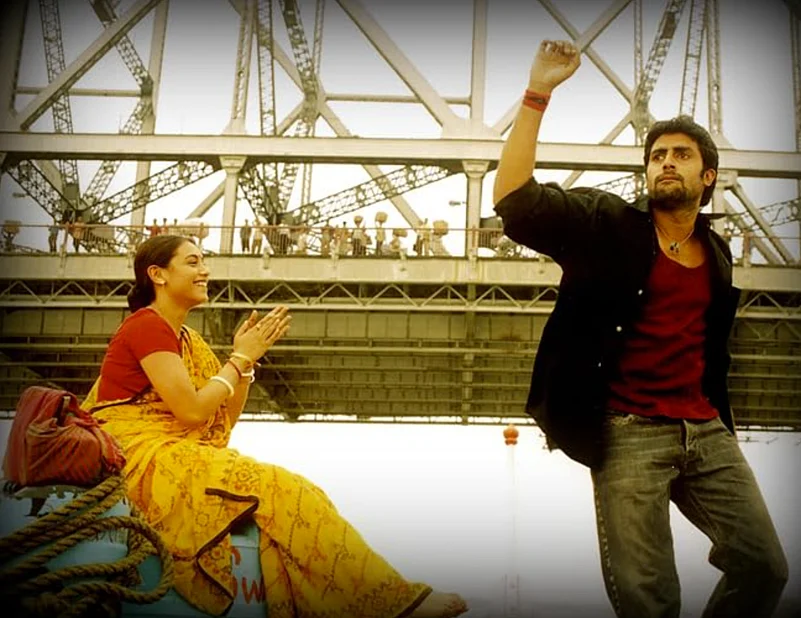
Premature Expectations
Even with critical hits like Yuva (2004) and Guru (2007), and commercial ones like Bunty aur Babli (2005), Bachchan’s one defining role, ironically, has been being Amitabh Bachchan’s son. And perhaps that’s exactly why he hasn’t been granted a defining role of his own. No matter what he does or how he does it, the comparisons have always been inescapable and it has often been brutal.
Strangely enough, he has never been compared to his mother, Jaya Bachchan (née Bhaduri), a stalwart in her own right, and one of the finest actors of her generation. It’s a curious omission, especially considering she carved her legacy in an era when women in cinema had far more limited shelf lives than they do today. That her brilliance is so often overlooked in these conversations is a reflection not just of Bollywood’s gendered memory, but also of how male legacy tends to eclipse everything else.
Nonetheless, he has quietly accumulated a body of work that resists the flashiness of superstardom and leans instead towards longevity and often a ton of humility. There has also been a modicum of experimentation and risk in the recent years.
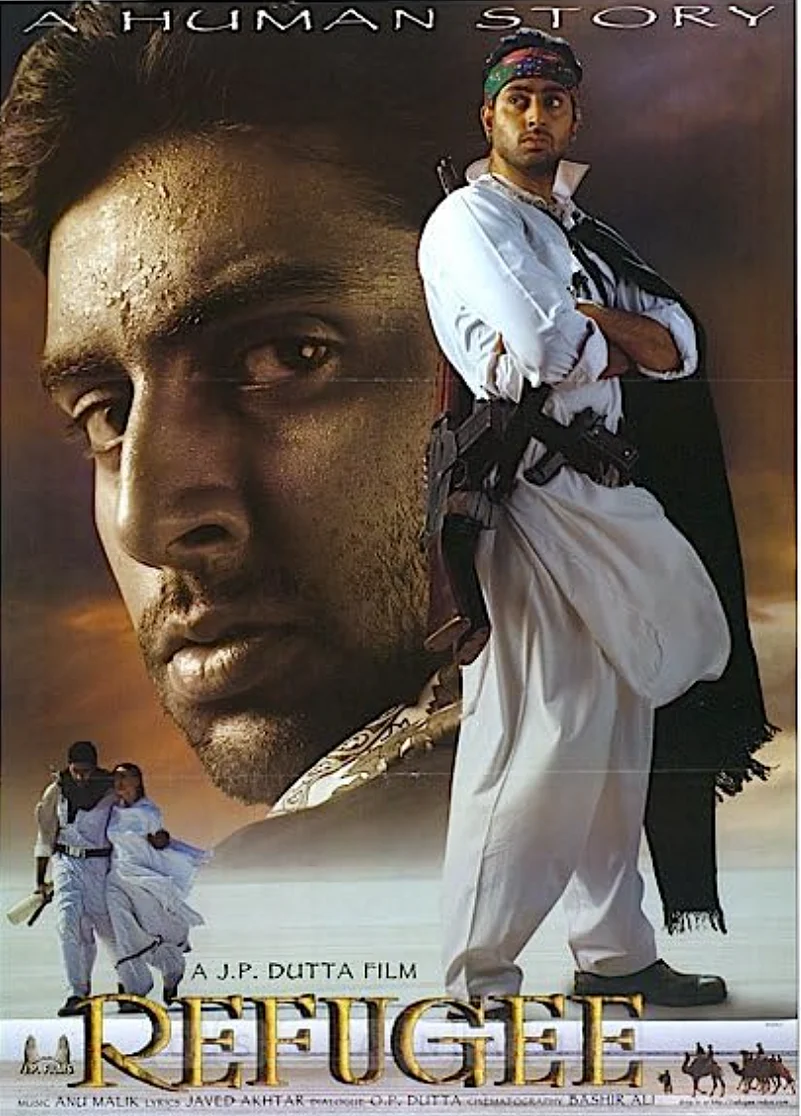
Bachchan’s debut in Refugee was not met with much fanfare, but that didn’t stop Bollywood from investing in him or, rather, investing in the idea of him. Being the Bachchan scion meant getting seventeen chances before finally scoring a clear commercial hit with Dhoom in 2004, the same year he impressed critics with his performance as political stooge Lallan Singh in Ratnam's Yuva. That’s an astronomical luxury in an industry where one flop can end a career before it even starts.
But with that nepotistic privilege came an impossible burden. The expectations were mythic. Not only was he expected to succeed, he was also expected to reign. He was slotted into the romantic hero mould, perhaps because Bollywood had become more Shah Rukh than Shahenshah by then. But Abhishek didn’t quite fit there. He lacked SRK’s romantic charm, Roshan’s charisma, and even his father’s thunderous gravitas. His appeal was subtler—his screen presence, quieter. And for a long time, the industry didn’t know what to do with that.
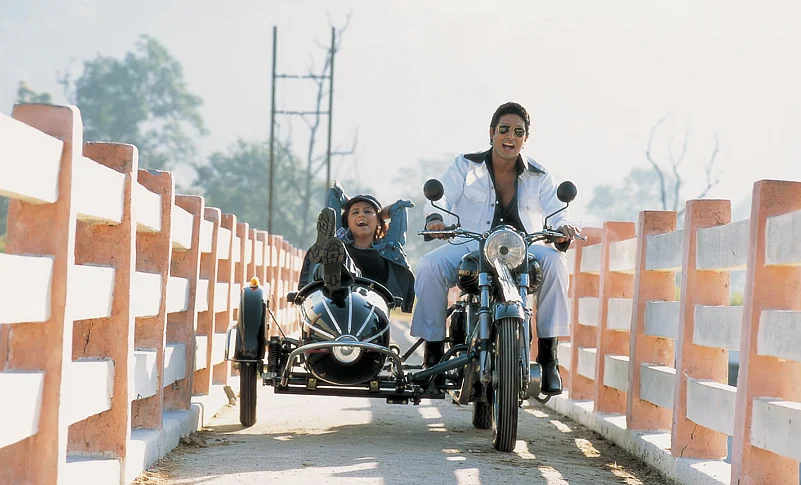
The Emergence of a Persona
It wasn’t until the mid-2000s that Jr Bachchan found his groove. Yuva gave him his first real moment. As Lallan Singh, he was raw, angry, and believable. Suddenly, he wasn’t trying to be a conventional hero anymore. That same year, Dhoom turned him into a bankable star, and Bunty Aur Babli showed he could do comedy with flair. Then came Sarkar (2005), and most significantly, Guru—arguably his best performance to date.
In Guru, he delivered a character arc that spanned youth, ambition, love, betrayal, and moral compromise. It should have been his moment. It almost was. If he has a career-defining role, then it is this.
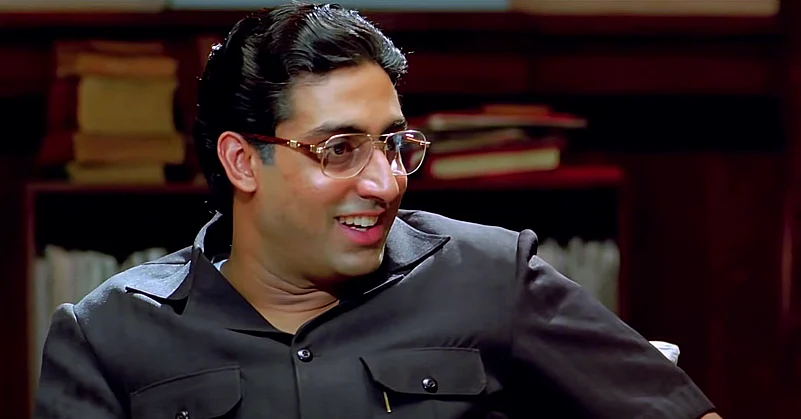
A Rapid Fall to Mediocrity Yet Again & a New Wind
Bachchan’s star was on the horizon only for a short while. For most other actors, that would have been enough. But it wasn’t meant to be so for him.
The narrative got hijacked soon enough again—by gossip, by his marriage to Aishwarya Rai, and by the relentless machinery that wouldn’t let him just be. He was always a “Bachchan” first, an almost-star second, and an actor last.
What followed was a curious phase. He became a fixture in ensemble comedies like Bol Bachchan (2012), Housefull 3 (2016), and the Dhoom sequels. He was often the straight man in a circus, doing what needed to be done—neither extraordinary nor embarrassingly bad. It was work. And he kept doing it.
Another shift has arrived in the last few years, where he has begun picking roles that no longer try to chase stardom. Instead, he has been trying to disappear into everyman characters. In Manmarziyaan (2018), he played the gentle, stoic foil to Vicky Kaushal’s manic energy. In Dasvi (2022), he got to shred the façade of corruption in politics in a self-contained satire. His turn in I Want to Talk (2024) and Kaalidhar Laapata (2025) have further showcased his growing ease with offbeat, character-driven roles that rely less on star power and more on presence.
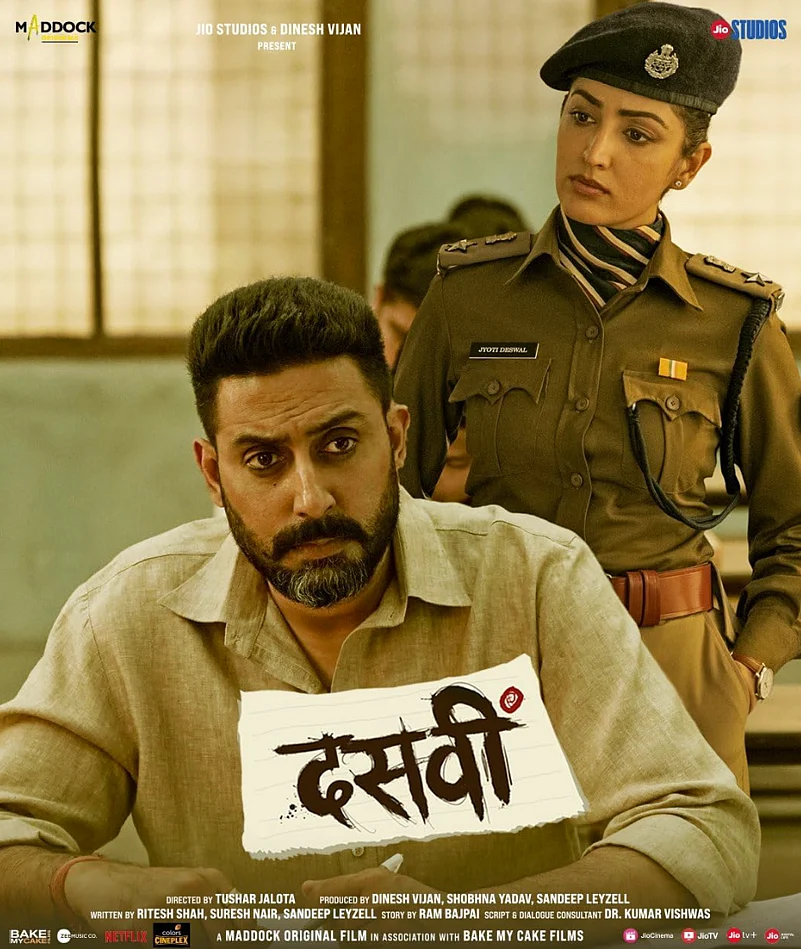
The fact that he continues to get opportunities—even offbeat indie ones—is, once again, because of the Bachchan brand. But therein lies the paradox. In India’s star-driven system, you often need a star to sell a “non-starry” story. This isn’t a solution; it’s a symptom—of a system that has always preferred celebrity over craft, legacy over merit. He is among the few actors who have spoken candidly about failure—not with bitterness, but with insight. Bachchan, to his credit, has tried to make peace with this contradiction. He’s often talked about being “okay” with not being the biggest star in the room. In an industry built on egos, that in itself is refreshing.
Abhishek Bachchan isn’t a big star today. His celebrity often overshadows his artistic merit. But this is also the story of a man who, born into impossibly large shoes, didn’t trip trying to fill them. Instead, he has slowly built a path of his own. He has weathered ridicule, embraced reinvention, and kept showing up.
After 25 years, Abhishek Bachchan is still here. Still acting. And that is something.















